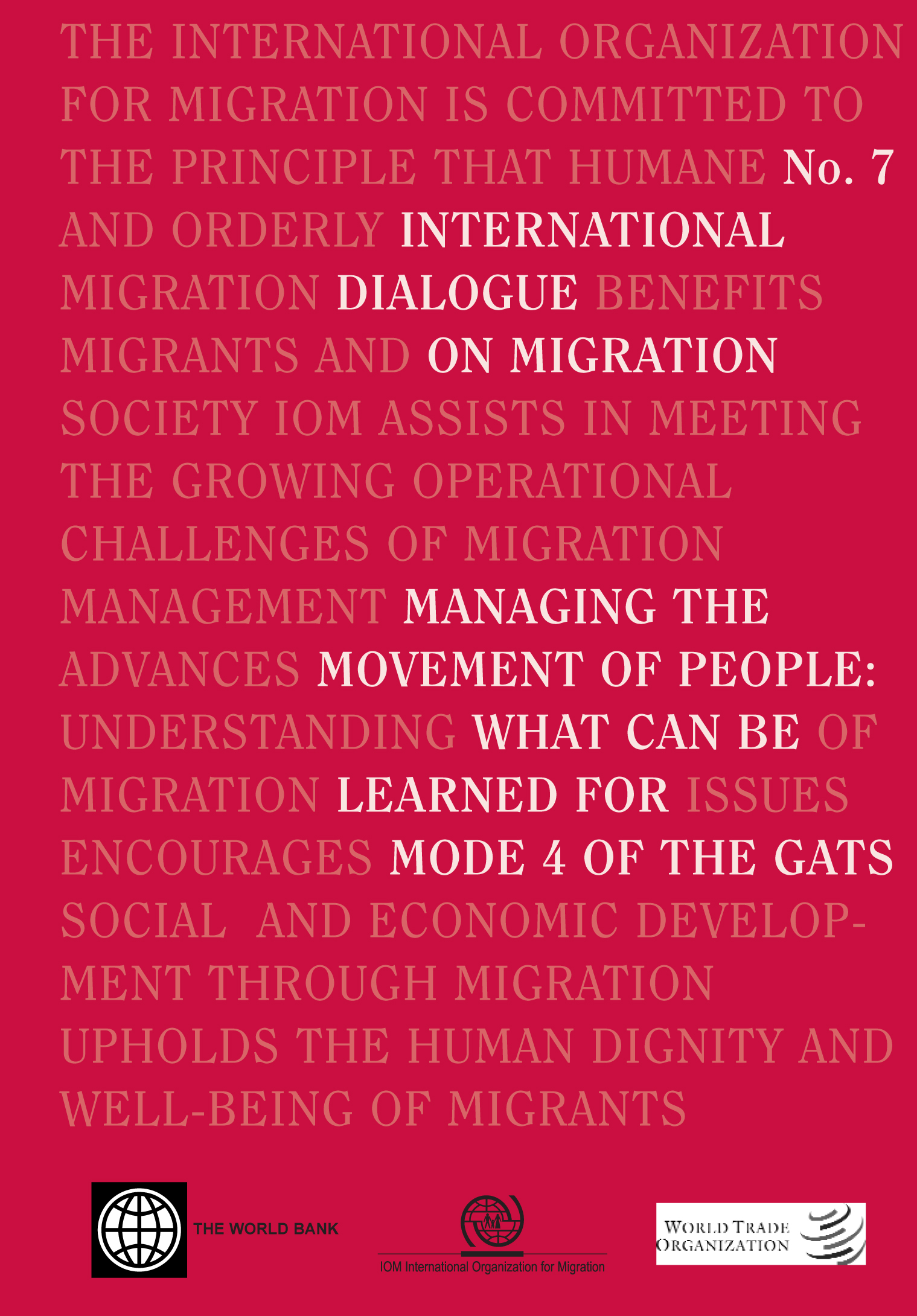Executive summary

- Author: International Organization for Migration
- Main Title: International Dialogue on Migration No. 7 , pp 9-16
- Publication Date: March 2005
- DOI: https://doi.org/10.18356/9789210026994c001
- Language: English
- Previous Chapter
- Table of Contents
- Next Chapter
What can we learn from the actual experiences of governments in managing the movement of people that may be of relevance for ongoing efforts to reduce barriers to trade in services? Global trade liberalization negotiations have resulted in substantial reduction of barriers to trade in goods and capital, resulting in substantial global economic gains. Barriers to the movement of people, however, have been identified as a continuing and substantial impediment to further global economic gains from trade liberalization, gains which are predicted both to exceed gains from further liberalization in other sectors and to benefit developing and developed economies alike. Against the backdrop of increasing international movement of people precipitated by transportation and communication revolutions, and demographic projections forecasting aging and declining populations in much of the developed world, global attention is focused on whether and how the global trading system can contribute to progressively facilitating the movement of people in an orderly, predictable, safe and mutually beneficial manner.
-
From This Site
/content/books/9789210026994c001dcterms_title,dcterms_subject,pub_keyword-contentType:Journal -contentType:Contributor -contentType:Concept -contentType:Institution105

